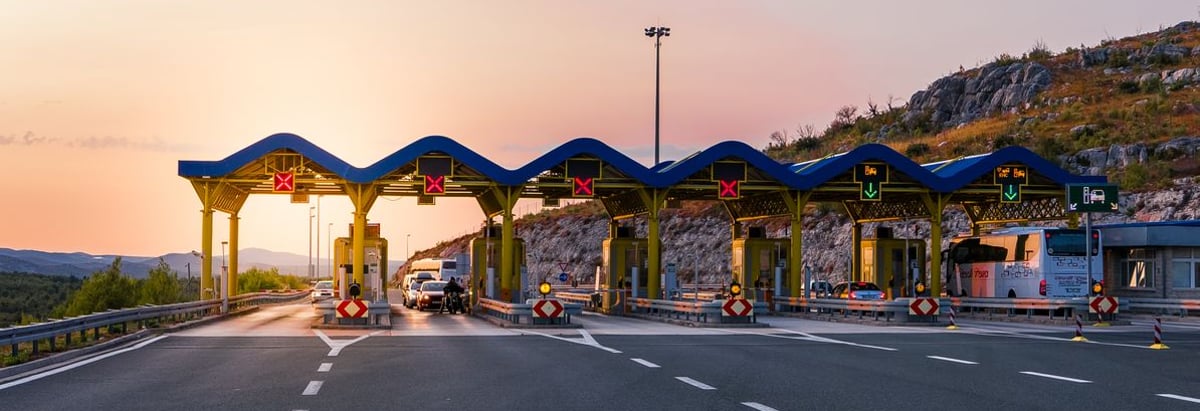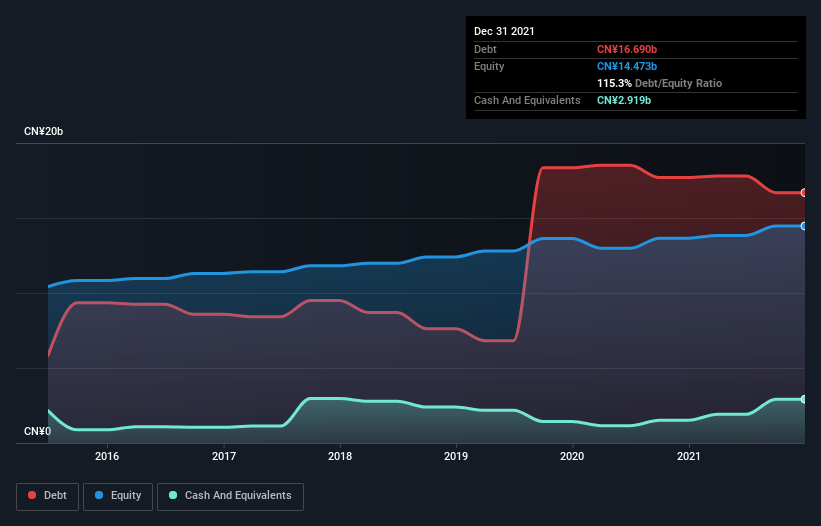- Hong Kong
- /
- Infrastructure
- /
- SEHK:1052
Yuexiu Transport Infrastructure (HKG:1052) Takes On Some Risk With Its Use Of Debt

David Iben put it well when he said, 'Volatility is not a risk we care about. What we care about is avoiding the permanent loss of capital.' So it seems the smart money knows that debt - which is usually involved in bankruptcies - is a very important factor, when you assess how risky a company is. As with many other companies Yuexiu Transport Infrastructure Limited (HKG:1052) makes use of debt. But is this debt a concern to shareholders?
When Is Debt Dangerous?
Generally speaking, debt only becomes a real problem when a company can't easily pay it off, either by raising capital or with its own cash flow. Part and parcel of capitalism is the process of 'creative destruction' where failed businesses are mercilessly liquidated by their bankers. However, a more frequent (but still costly) occurrence is where a company must issue shares at bargain-basement prices, permanently diluting shareholders, just to shore up its balance sheet. Having said that, the most common situation is where a company manages its debt reasonably well - and to its own advantage. When we think about a company's use of debt, we first look at cash and debt together.
See our latest analysis for Yuexiu Transport Infrastructure
How Much Debt Does Yuexiu Transport Infrastructure Carry?
The image below, which you can click on for greater detail, shows that Yuexiu Transport Infrastructure had debt of CN¥16.7b at the end of December 2021, a reduction from CN¥17.7b over a year. However, it also had CN¥2.92b in cash, and so its net debt is CN¥13.8b.

How Healthy Is Yuexiu Transport Infrastructure's Balance Sheet?
According to the last reported balance sheet, Yuexiu Transport Infrastructure had liabilities of CN¥4.59b due within 12 months, and liabilities of CN¥16.6b due beyond 12 months. Offsetting these obligations, it had cash of CN¥2.92b as well as receivables valued at CN¥374.4m due within 12 months. So it has liabilities totalling CN¥17.9b more than its cash and near-term receivables, combined.
The deficiency here weighs heavily on the CN¥6.26b company itself, as if a child were struggling under the weight of an enormous back-pack full of books, his sports gear, and a trumpet. So we definitely think shareholders need to watch this one closely. At the end of the day, Yuexiu Transport Infrastructure would probably need a major re-capitalization if its creditors were to demand repayment.
We use two main ratios to inform us about debt levels relative to earnings. The first is net debt divided by earnings before interest, tax, depreciation, and amortization (EBITDA), while the second is how many times its earnings before interest and tax (EBIT) covers its interest expense (or its interest cover, for short). Thus we consider debt relative to earnings both with and without depreciation and amortization expenses.
Yuexiu Transport Infrastructure's debt is 4.7 times its EBITDA, and its EBIT cover its interest expense 2.7 times over. Taken together this implies that, while we wouldn't want to see debt levels rise, we think it can handle its current leverage. Looking on the bright side, Yuexiu Transport Infrastructure boosted its EBIT by a silky 41% in the last year. Like a mother's loving embrace of a newborn that sort of growth builds resilience, putting the company in a stronger position to manage its debt. There's no doubt that we learn most about debt from the balance sheet. But ultimately the future profitability of the business will decide if Yuexiu Transport Infrastructure can strengthen its balance sheet over time. So if you want to see what the professionals think, you might find this free report on analyst profit forecasts to be interesting.
Finally, a business needs free cash flow to pay off debt; accounting profits just don't cut it. So it's worth checking how much of that EBIT is backed by free cash flow. Happily for any shareholders, Yuexiu Transport Infrastructure actually produced more free cash flow than EBIT over the last three years. That sort of strong cash generation warms our hearts like a puppy in a bumblebee suit.
Our View
We feel some trepidation about Yuexiu Transport Infrastructure's difficulty level of total liabilities, but we've got positives to focus on, too. To wit both its conversion of EBIT to free cash flow and EBIT growth rate were encouraging signs. We should also note that Infrastructure industry companies like Yuexiu Transport Infrastructure commonly do use debt without problems. Looking at all the angles mentioned above, it does seem to us that Yuexiu Transport Infrastructure is a somewhat risky investment as a result of its debt. Not all risk is bad, as it can boost share price returns if it pays off, but this debt risk is worth keeping in mind. There's no doubt that we learn most about debt from the balance sheet. But ultimately, every company can contain risks that exist outside of the balance sheet. Case in point: We've spotted 4 warning signs for Yuexiu Transport Infrastructure you should be aware of, and 2 of them shouldn't be ignored.
At the end of the day, it's often better to focus on companies that are free from net debt. You can access our special list of such companies (all with a track record of profit growth). It's free.
New: Manage All Your Stock Portfolios in One Place
We've created the ultimate portfolio companion for stock investors, and it's free.
• Connect an unlimited number of Portfolios and see your total in one currency
• Be alerted to new Warning Signs or Risks via email or mobile
• Track the Fair Value of your stocks
Have feedback on this article? Concerned about the content? Get in touch with us directly. Alternatively, email editorial-team (at) simplywallst.com.
This article by Simply Wall St is general in nature. We provide commentary based on historical data and analyst forecasts only using an unbiased methodology and our articles are not intended to be financial advice. It does not constitute a recommendation to buy or sell any stock, and does not take account of your objectives, or your financial situation. We aim to bring you long-term focused analysis driven by fundamental data. Note that our analysis may not factor in the latest price-sensitive company announcements or qualitative material. Simply Wall St has no position in any stocks mentioned.
About SEHK:1052
Yuexiu Transport Infrastructure
Invests in, constructs, develops, operates, and manages toll expressways and bridges in the People’s Republic of China.
Average dividend payer and fair value.
Market Insights
Community Narratives



